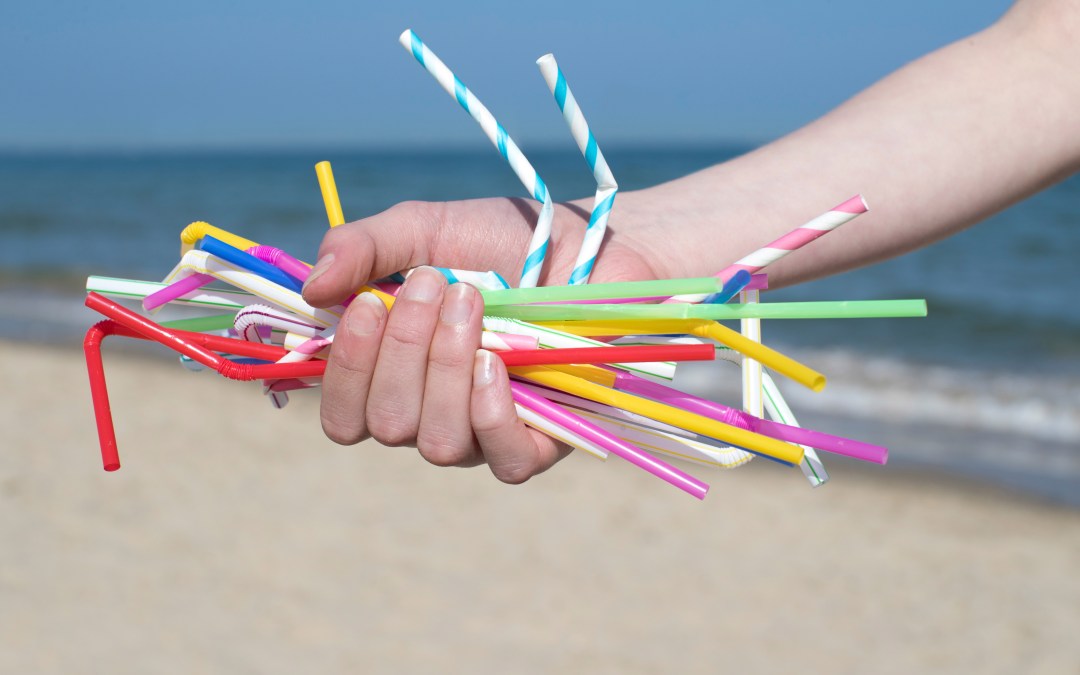The plastic pandemic
In this extract from her book, Turning The Tide On Plastic, journalist, broadcaster and eco campaigner, Lucy Siegle, urges us all to do our bit – and fast

Watching the global plastic disaster unfold before us, we’ve come to the realisation that it isn’t as easy to recycle as we once assumed. That’s difficult for some of us to admit: I pride myself on being an excellent recycler but, over the past 12 months, I’ve seen the Mobius loop displayed on products from single-use coffee cups – I know that fewer than one in 1,000 is actually successfully recycled – to black plastic readymeal trays that blend into the conveyor belt at the sorting facility. (This means that, in most waste-management establishments, they can’t be picked up for recycling without a great deal of effort or new technology.)
The once-cherished Mobius loop, telling us something has the potential to be recycled, now seems misleading – but it is liberally applied. In fact, a brand or retailer can slap the Mobius loop on pretty much anything they like because, in theory, any material can be recycled – it just depends how much energy, time and money you’re prepared to spend doing it.
The question is: will it be recycled? Certainly there’s a better chance that your waste will be recycled if you sort it, wash it and get it into the right bin –but we simply don’t know. In most of the UK – Wales is a glowing exception – we have a Byzantine medley of systems. From one side of Greater Manchester to the other, you might experience an entirely different set of coloured bins, protocols and collection dates.
In our plastic special on The One Show in April, host Matt Baker expressed viewers’ utter bemusement and frustration at the lack of harmony between local authorities’ plastic collections. He said it was ‘bonkers’. ‘I think we would agree that it is suboptimal,’ said Michael Gove, Secretary of State for the Environment, down the line from the House of Commons, ‘which is,’ he conceded, ‘Westminster-speak for “bonkers”.’
Confucius says…
In their own inimitable way, industry and retailers have tried to stage an intervention… with more labels! Accepting that the Mobius loop wasn’t getting the job done, they introduced an on-pack message system. This is ‘advice’, tailored for our patchwork of recycling regimens.
Labels are divided into three categories that claim to offer more nuanced guidance when we’re trying to navigate our local recycling systems: there’s ‘Widely recycled’, for packaging collected by at least 65 per cent of councils; ‘Check local recycling’, for materials collected by 15 to 65 per cent of councils; and ‘Not currently recycled’, for items collected by fewer than 15 per cent of councils. If you like percentages, and working out the odds as you queue, they are a treat. These are not hobbies of mine, but I respect the fact the labels are trying to help and reveal a few more clues.
In my opinion, the 3Rs are failing us on a daily basis – when we are not failing them. ‘Reduce, Reuse, Recycle’ was a bold ideal that carried currency for a long time. But, out of the three, ‘Recycle’ has the strongest voice. It doesn’t just cast a shadow across Reduce and Reuse: it drowns them out. We’ve become fixated on getting to the recycling, forgetting that we need to stop the superfluous flow of waste in the first place.
‘Plastic is the most complex, difficult material to recycle,’ says Douglas Woodring, founder of NGO Ocean Recovery Alliance, who also noted: ‘Most of the world does not have the ability to recover materials.’ For all the assurances that recycling is becoming more innovative and widespread, remember that the global recycling rate for plastic is less than 15 per cent. Just five per cent of the material value is what you may call truly ‘recycled’ and retained for subsequent use.
Given what Mobius and the 3Rs have been preaching for 40 years, you’d hope the figures would be better: I reiterate: Fifteen per cent of the globe’s plastic waste is recycled, of which five per cent is turned into a recycled object or material. Remember those facts. Neither Mobius nor the 3Rs pass muster in this Age of Plastic. Faced with a tsunami of ever-growing complex polymers and types of plastic packaging, both look hopelessly naive. We can do better.
Rethink the 3Rs
- Building on the age-old framework of ‘Reduce, Reuse, Recycle’, Lucy Siegle proposes five more practical strategies we can act on right now. Conveniently, they also begin with the letter R
- Record. Collect your own data about your consumption, so that you drive your own success.
- Replace. Swap the ecological hooligans that colonise your cupboard, gym bag and commute, for cool high-function, low-impact alternatives.
- Refuse. Find your steely inner core to form a robust defence that will stop unnecessary plastic getting into your life.
- Refill. Navigate the places and products that bring everyday life up to speed without using disposable plastic.
- Rethink. Develop a cutting-edge way of solving plastic challenges. You’re part of the solution, not the pollution.
- Incorporate the original 3Rs – and I give you 8Rs: Record, Reduce, Replace, Refuse, Reuse, Refill, Rethink, Recycle. Granted, it’s harder to remember but, once you focus on delinking your life from plastic, these steps will become second nature. This is all about giving ourselves as many chances as possible to curtail the deadly march of plastic before we even get to the Recycle stage.
Extract from ‘Turning The Tide On Plastic: How Humanity (And You) Can Make Our Globe Clean Again‘
Image: Getty









